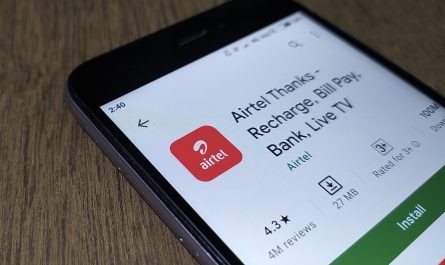In the digital age, messaging apps like WhatsApp have become integral to our daily lives, connecting us with friends, family, and colleagues with just a few taps. However, with convenience comes vulnerability, and scammers are constantly devising new ways to exploit unsuspecting users. In this guide, we’ll delve into 13 WhatsApp scams that are prevalent in 2024, equipping you with the knowledge to recognize and avoid potential threats.
1. The “WhatsApp Gold” Scam
The WhatsApp Gold scam promises users access to exclusive features by downloading a premium version of the app. In reality, there is no such thing as WhatsApp Gold, and clicking on the link could lead to malware installation or data theft.
2. The “Verification Code” Scam
Scammers may attempt to trick users into divulging their verification code under the guise of a security measure. Once obtained, these codes can be used to hijack accounts and perpetrate further scams.
3. The “Fake Offers” Scam
Fraudulent offers and discounts circulated on WhatsApp may appear enticing, but they often lead to phishing websites or malicious downloads. Exercise caution when engaging with unsolicited promotions.
4. The “Voice Message” Scam
Malicious voice messages may contain malware or phishing attempts. Avoid clicking on suspicious voice messages from unknown contacts and consider enabling message preview to assess their content before playback.
5. The “Fake Job” WhatsApp Scam
Job seekers should be wary of unsolicited job offers on WhatsApp, especially those that require upfront payments or personal information. Research prospective employers thoroughly and verify the legitimacy of job listings before proceeding.
Read more: Avoid money transfer scams – Do’s & Don’ts
6. The “Impersonation” Scam
Scammers may impersonate trusted contacts to solicit money or personal information. Always verify the identity of the sender before responding to requests for sensitive data or financial assistance.
7. The “Phishing” WhatsApp Scam
Phishing scams on WhatsApp often involve deceptive links or messages designed to trick users into revealing login credentials or other confidential information. Be vigilant and avoid clicking on suspicious links.
8. The “Fake News” Scam
Misinformation spreads rapidly on WhatsApp, leading to confusion and panic. Verify the accuracy of news stories before sharing them and encourage others to do the same to combat the spread of fake news.
9. The “Gift Card” Scam
Scammers may offer fake gift cards or vouchers on WhatsApp in exchange for personal information or payment. Exercise caution when presented with unsolicited gift card offers and refrain from sharing sensitive details.
10. The “Spyware” WhatsApp Scam
Spyware scams involve the installation of malicious software on users’ devices, allowing scammers to monitor activity and steal sensitive information. Protect yourself by regularly updating your device’s security software and avoiding suspicious downloads.
Read more: How to identify fake payment screenshots?
11. The “Subscription Renewal” Scam
Fake subscription renewal notices may trick users into making unnecessary payments or revealing payment details. Verify the legitimacy of subscription notifications directly through the official WhatsApp website or app.
12. The “Charity” Scam
Fraudulent charity appeals on WhatsApp exploit users’ generosity for personal gain. Before donating to charitable causes, research the organization and ensure your contribution reaches legitimate recipients.
13. The “Tech Support” Scam
Tech support scams involve posing as legitimate service providers to gain access to users’ devices or personal information. Only seek technical assistance from reputable sources and never provide remote access to unfamiliar individuals.

Scams on WhatsApp are getting smarter every day, be careful
In conclusion, vigilance is key to protecting yourself from WhatsApp scams in 2024. By familiarising yourself with these common tactics and adopting best practices for online security, you can safeguard your personal information and enjoy a safer messaging experience. Remember to remain sceptical of unsolicited messages and offers and report any suspicious activity to WhatsApp to help protect yourself and others from falling victim to scams.
In modern times, these scams have become very popular, and the most common targets could be literally anyone. Since WhatsApp is so popular and everyone is using it, most people do not even realise that they have been affected by a scam until it is too late for anything. Online payments are one of the most important aspects of online scams, and if you want a single online app for all your prepaid SIM card recharges or bill payments, then try out the Airtel Thanks UPI app.
The Airtel Thanks app is your home for all things Airtel, and more. You can apply for personal loans or a credit card, pay your utility bills, manage your account, earn cashbacks when you use Airtel UPI and much more.


 Get App
Get App  Airtel Store
Airtel Store  Login
Login 


